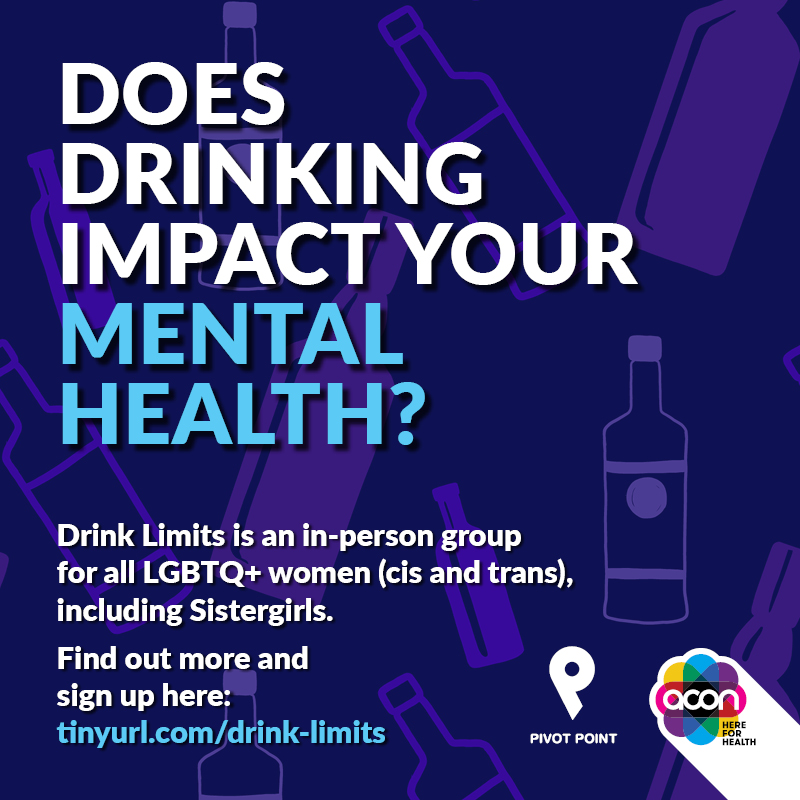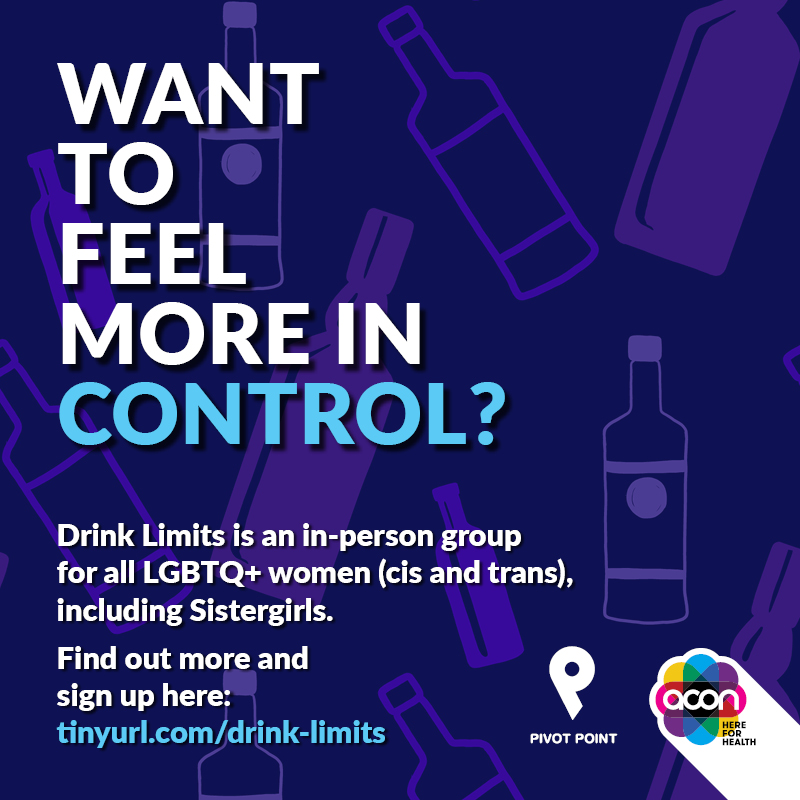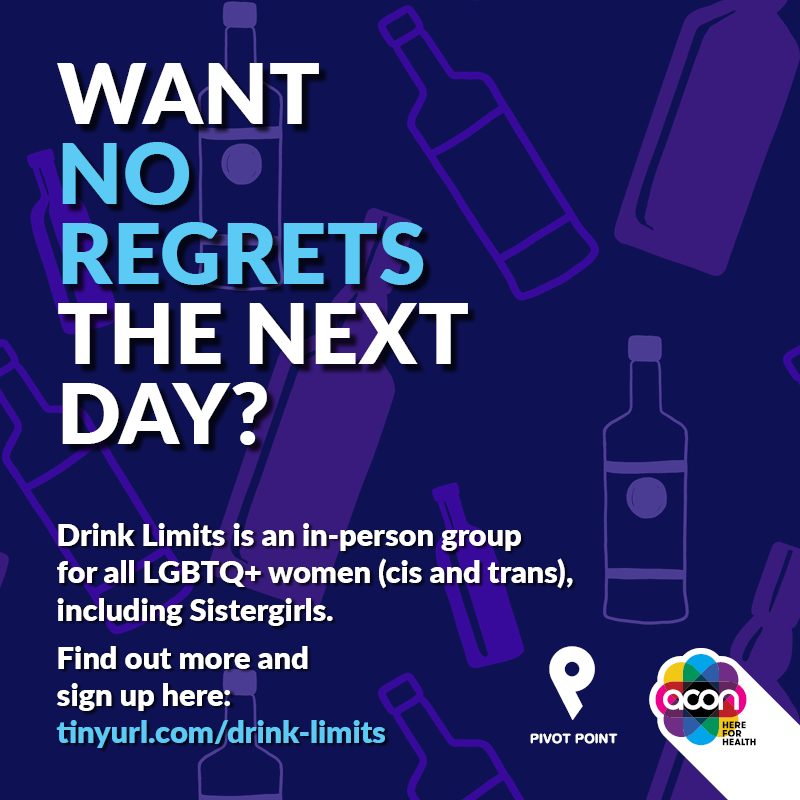The origins of Drink Limits
Written by Lucy Watson. Lucy was a Community Health Promotion Officer in ACON’s Alcohol and Other Drugs and Mental Health programs and is now ACON's Policy and Development Officer. She has lived in Sydney for 12 years (long enough to have seen at least four refurbishments, and finally the closure, of the Sly Fox) and identifies as queer.
Communities that centre around LGBTQ+ women (trans and cis) drink more than the general population. Through research, community consultations and a whole bunch of conversations on the ground, ACON has been engaging with people in these communities around the subject of drinking for a while.
We care about this, so we’ve been keen to learn more about the ins and outs of drinking for these communities, and to respond in the best way possible. Everyone’s reasons for drinking are different and not everyone who drinks experiences harms. Some of us, however, do experience harms and others of us might wish to learn some strategies that will enable us more agency and control around our drinking decisions.
ACON’s new Drink Limits Program, a free eight-week in-person group work program for all LGBTQ+ women (trans and cis), including Sistergirls, who want to change their drinking habits (originally developed by Thorne Harbour Health). I want to explain how we got here.
Data collected by the Australian Centre for Sex, Health and Society (La Trobe University) in their Private Lives 3 study show that LGBTQ+ women drink at elevated rates. The study found that 31.7% of trans women and 27.1% of cis women reported that their consumption of alcohol exceeded two standard drinks per day, with 26.1% and 26.4% of women (trans and cis, respectively) reported consuming six or more standard drinks on more than one occasion monthly or more often. Of concern, was that 19.0% and 16.4% of women (tans and cis, respectively) reported struggling to manage their alcohol use or a time where it impacted negatively on everyday life in the previous 12-months. These data show confirm what ACON have been committed to understanding for some years now, as part of ACON’s commitment to all women within sexuality and gender-diverse communities.
Coming across this data wasn’t exactly surprising, given my own experiences with alcohol in the community. But it was a bit of a wakeup call. I knew that queer and trans women had a tendency to drink, but I had assumed that everyone had a tendency for that. I didn’t realise the disparity.

In 2019, ACON ran some consultations with some local Sydney LGBTQ+ women. These consultations were a conversation with community about why many of us drink, whether this is a problem, and what can be done to encourage a better relationship between our communities and alcohol. SWASH data from 2014 reveals that 60% of participants had made an attempt to reduce how much they drink in the last year, and 26% said they would like to reduce or cease drinking alcohol, so we know this is something the community has been thinking about for a while.
At consultations, Sydney LGBTQ+ women told us that they often drink to facilitate connection and enable participation in the community. Drinking enables confidence, conversations, and participation in some queer spaces, especially bars. But on the flip side, drinking can sometimes negatively impact mental health, and makes it difficult to achieve goals.

What we identified during these consultations was a need to talk about alcohol. We need to talk to you, and with you. We need to have conversations about what safer consumption of alcohol looks like, and to offer tailored programs that speak directly to these communities.
You told us that we need to recognise the agency of our communities and provide space and support for queer and trans women who wish to alter their relationship with alcohol. These communities need to be included in messages around alcohol, and need programs and support to be better informed about who we are.
You talked, we listened. Watch this space for further campaigns and messaging work that reflects our community experiences around alcohol, and we’re piloting Drink Limits, an eight-week in-person group program designed to help all LGBTQ+ women (trans and cis), including Sistergirls, change their drinking habits. Developed by Thorne Harbour Health, Drink Limits is designed to offer you strategies to reduce alcohol consumption, and help you feel better.
Our conversations with community around alcohol and our wellbeing are ongoing. We’re listening.
If you feel like your drinking is affecting your mental health, giving you regrets, or preventing you from reaching your full potential, this could be the program for you. Please fill out the form below to receive a phone call to talk through the program and your needs.
